"Once you stop learning, you start dying"
- Albert Einstein



RACHEL HEIMBACH
Developer
rheimbach@quintor.nl
@Rach_Nerd
HENK BAKKER
Developer
hbakker@quintor.nl
@spike1292




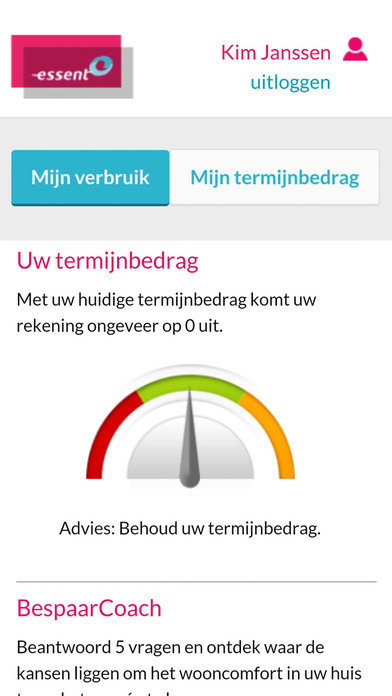




XML



Angular 2
- Big community
- Popular framework
- Scales well
- Code share




NativeScript
- iOS + Android app
- Native performance
- No webview
- Angular 2 integration



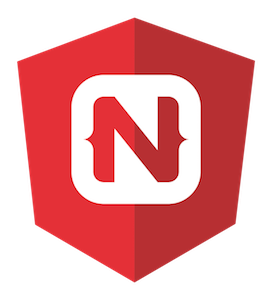






XML
JSON






Application level
Essent modules
API Gateway




Code sharing


- Component-based
- Dependency injection
- Modules (Http, Forms, ...)
- Platform independent

This is not PhoneGap, Cordova or Ionic
- Real Native Components
- No DOM to manipulate
- Not HTML elements styled like native components


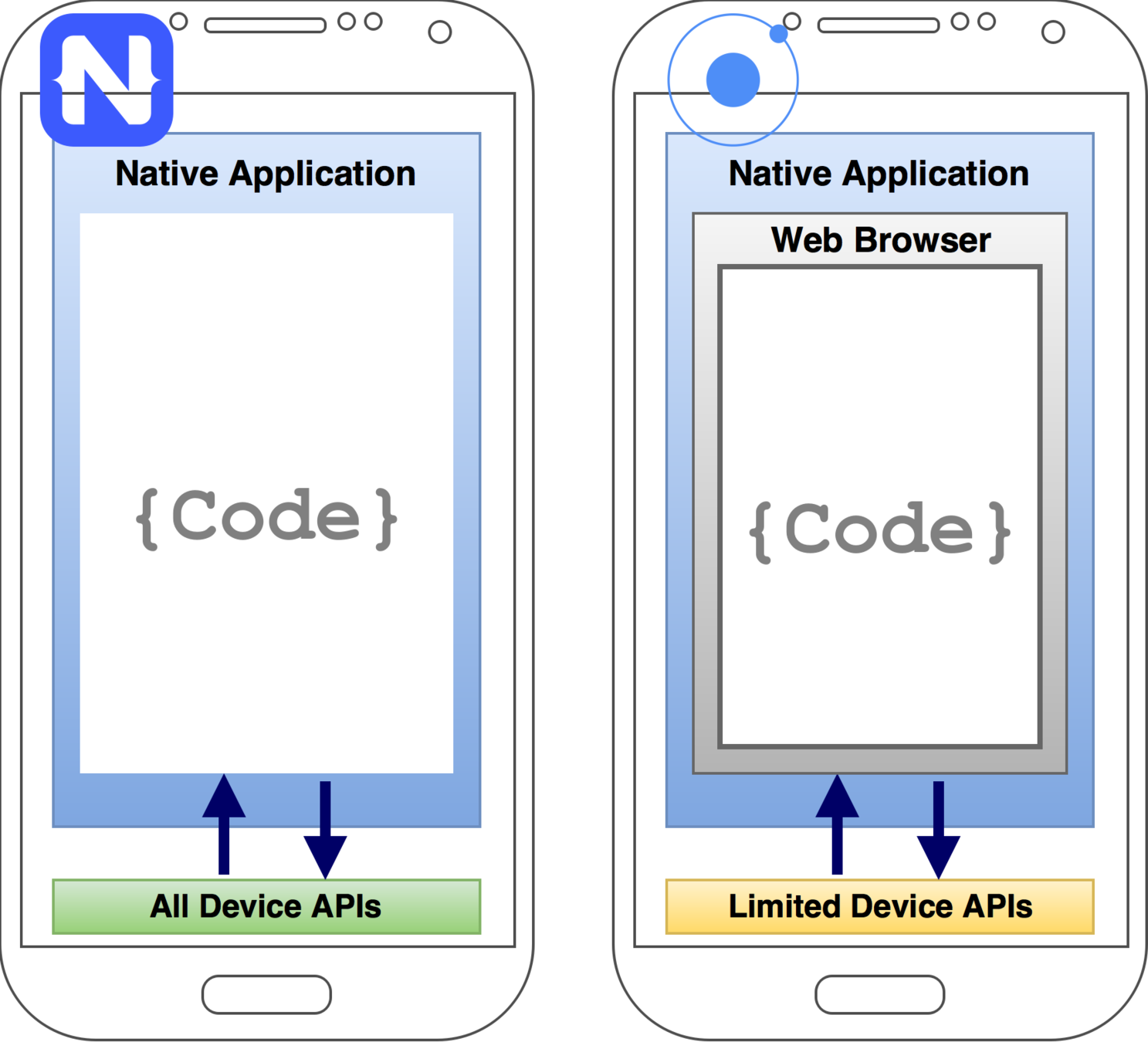
Use lots of prebuilt code


Native Layout Containers
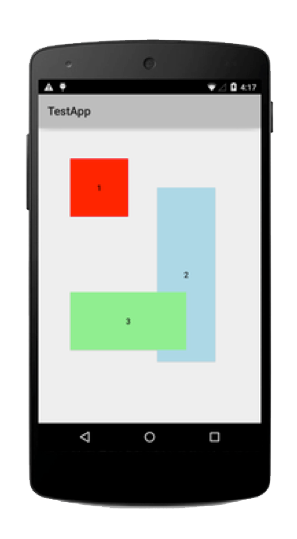




Absolute
Dock
Grid
Stack
Wrap
Like '<div>' - more concise though
<Page xmlns="http://schemas.nativescript.org/tns.xsd">
<StackLayout class="p-20">
<Label text="Tap the button" class="h1 text-center"/>
<Button text="TAP" tap="{{ onTap }}" class="btn btn-primary"/>
</StackLayout>
</Page>
// DOM comparison...
<html>
<body>
<div class="p-20">
<h1 class="h1 text-center">Tap the button</h1>
<button type="button" class="btn btn-primary"
(tap)="onTap()">TAP</button>
</div>
</body>
</html>


VM
const switch = new Switch();



Nativescript modules
Nativescript runtime
Switch module
NativeScript Modules





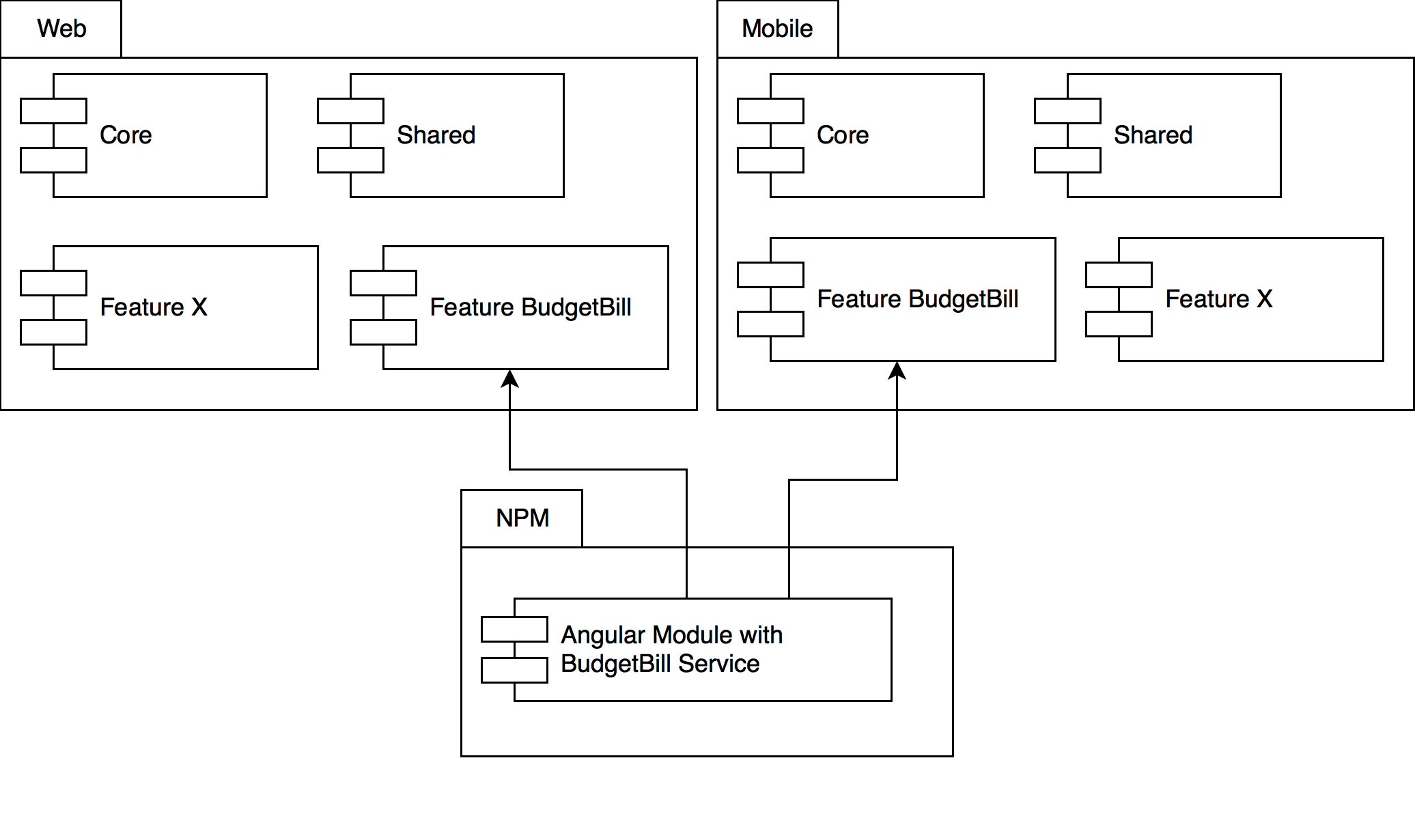




State management!?

?
RxJS
"...is a set of libraries to compose asynchronous and event-based programs using observable collections and Array style composition in JavaScript" - RxJS
Observable
"The Observer and Observable interfaces provide a generalized mechanism for push-based notification, also known as the observer design pattern." -RxJS
const observable$ = Observable.of('foo');
observable$
.subscribe(
value => console.log(value),
error => console.error(error),
() => console.log('Completed')
);
// LOG: foo
// LOG: Completed
observable$
.map(text => text + ' bar')
.subscribe(
value => console.log(value),
error => console.error(error),
() => console.log('Completed')
);
// LOG: foo bar
// LOG: CompletedSubject
"An RxJS Subject is a special type of Observable that allows values to be multicasted to many Observers" - RxJs
const subject = new Subject();
subject
.subscribe(
value => console.log(value),
error => console.error(error),
() => console.log('Completed')
);
subject.next('foo'); // LOG: foo
subject.next('bar'); // LOG: bar
subject.complete(); // LOG: Completed
subject.next('foo'); const subject = new Subject();
const observable$ = subject.asObservable();
observable$
.subscribe(
value => console.log(value),
error => console.error(error),
() => console.log('Completed')
);
subject.next('foo'); // LOG: foo
subject.next('bar'); // LOG: barobservable$.next('foo'); // Error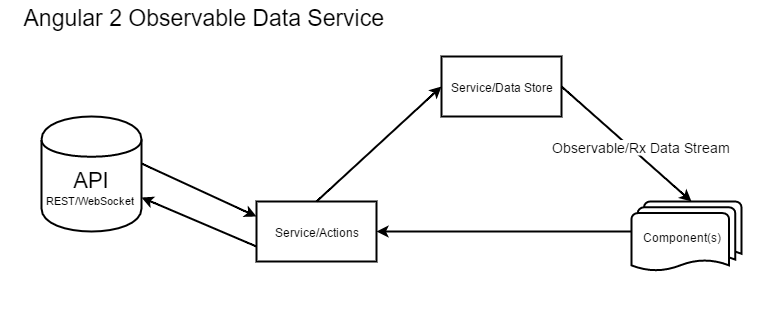

@Injectable()
export class BudgetBillService {
amount$: Observable<number>;
private budgetBillStateSubject: Subject<BudgetBillState>;
constructor(private http: Http) {
this.budgetBillStateSubject = new Subject<BudgetBillState>();
this.amount$ = this.budgetBillStateSubject.asObservable()
.map((bbState: BudgetBillState) => bbState.amount);
}
get(): void {
this.http.get('assets/bbs.json')
.map((res: Response) => res.json())
.subscribe(
(bbState: BudgetBillState) =>
this.budgetBillStateSubject.next(bbState),
(error: Response) => console.error(error),
() => console.log('Completed')
);
}
}Streams
are
awesome!
Tips state management
- Keep state in streams
- Expose state as an observable
- Manipulate state by executing actions that push data through streams
- Never manually call error/complete on a stream you do not wish to close
Hot/Cold Observable
Hot
Cold
@Injectable()
export class TodosService {
todos$: Observable<Todo[]>;
private todosSubject: Subject<Todo[]>;
constructor(private http: Http) {
this.todosSubject = new Subject();
this.todos$ = this.todosSubject.asObservable();
}
get(): void {
this.http.get('assets/todos.json')
.map((res: Response) => res.json())
.subscribe(
(todos: Todo[]) => this.todosSubject.next(todos),
(error: Response) => console.error(error),
() => console.log('Completed')
);
}
}Hot
@Component({
selector: 'q-todos',
templateUrl: 'todos.component.html',
styleUrls: ['todos.component.css']
})
export class TodosComponent implements OnInit {
todos: Todo[] = [];
constructor(private todosService: TodosService) {
}
ngOnInit() {
this.todosService.todos$
.subscribe(
(todos: Todo[]) => this.todos = todos
);
this.todosService.get();
}
}
Subscription
"A Subscription is an object that represents a disposable resource, usually the execution of an Observable." - RxJS
const subject = new Subject();
const observable$ = subject.asObservable();
const subscription = observable$
.subscribe(value =>
console.log(value)
);
subject.next('foo'); // LOG: foo
subscription.unsubscribe();
subject.next('bar'); @Component({
selector: 'q-todos',
templateUrl: 'todos.component.html',
styleUrls: ['todos.component.css']
})
export class TodosComponent implements OnInit, OnDestroy {
todos: Todo[] = [];
private ngUnsubscribe = new Subject();
constructor(private todosService: TodosService) {
}
ngOnInit() {
this.todosService.todos$
.takeUntil(this.ngUnsubscribe)
.subscribe(
(todos: Todo[]) => this.todos = todos
);
this.todosService.get();
}
ngOnDestroy() {
this.ngUnsubscribe.next();
this.ngUnsubscribe.complete();
}
}
@Component({
selector: 'q-todos',
templateUrl: 'todos.component.html',
styleUrls: ['todos.component.css']
})
export class TodosComponent implements OnInit {
todos$: Observable<Todo[]>;
constructor(private todosService: TodosService) {
}
ngOnInit() {
this.todos$ = this.todosService.todos$
this.todosService.get();
}
}
<div *ngIf="todos$ | async as todos; else loading">
<div *ngFor="let todo of todos">
{{ todo.content }}
</div>
</div>
<ng-template #loading>Loading...</ng-template>Docs: https://angular.io/docs/ts/latest/api/common/index/NgIf-directive.html
Tips observables
- Identify hot observables
- Use async pipe to clean up hot subscriptions
- Unsubscribe remaining hot subscriptions onDestroy()
- Make use of operators like .take(1) to convert a hot streams to cold streams
Demo
Time
Resources

Nativescript Angular Case study
By Henk
Nativescript Angular Case study
- 416



